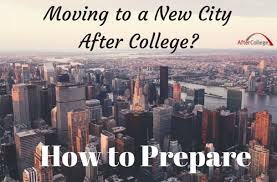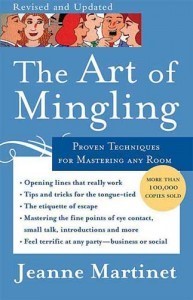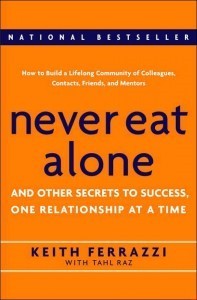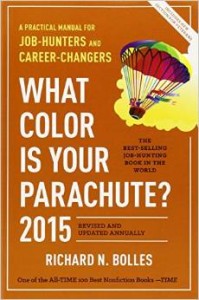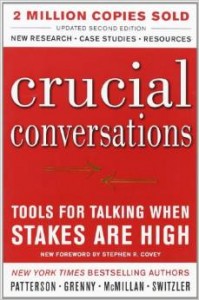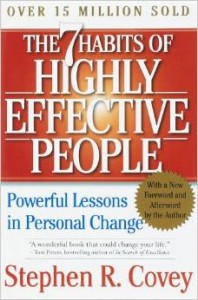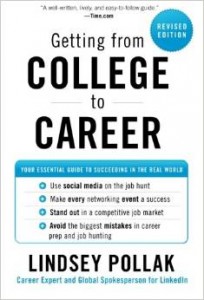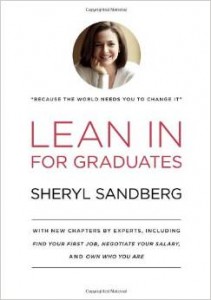Dr. Joseph Barber
I find Lego to be completely addictive. It doesn’t matter what I end up building so long as the process involves converting a pile of loose bricks into some sort of sprawling structure (that generally has a trapdoor – you always need a trapdoor). Sure, I tell my daughters that I am helping them build a house for their pipe-cleaner cats, but really I would be happy just building something even if they were off tormenting each other in the other room. My Lego addiction may be blog-worthy in a career advice sort of way for a couple of reasons. First off, it says something about my own personality type, and it helps me to understand what I might look for in any work environment. I enjoy working with my hands. I am always on the look-out for opportunities to cut, tie, or tape things. This isn’t actually that helpful in my day-to-day work life since I don’t work in a preschool (which might be fun were it not for all the snotty children), although my colleagues at Career Services have been on the receiving end of several items that have resulted from extensive cutting, tying, and taping of things together. However, hands-on doesn’t just mean actually using my hands to build things, it is also a way of approaching more intangible concepts. I enjoy developing new workshops, online materials, program series, and resources. In this respect, being hands-on is part of my creativity…, or the other way around…, it doesn’t really matter. What is common about building a Lego house for a pipe-cleaner cat and developing a new workshop is that both approaches require having an ultimate goal in mind, something that you are aiming to achieve, but in both cases there is a need to be flexible and adaptable to integrate new ideas and approaches to be successful along the way. I know what I want the Lego house to have (doors, windows, and a trapdoor, of course), and what it should generally look like, but I have to adapt to the bricks that I actually have and the changing demands of my “clients” (“no…, catty needs a bed that turns into a car with wings”). So, think about what you enjoy doing the most at work or home, and then think about why. After this, you can think about where you might find other types of work environments, positions, or organizations that will give you the opportunity to contribute to their goals by using your preferred skills. If you need help with figuring out who you are, and what it is you do well, and don’t have ready access to 1600+ Lego blocks, then consider taking some of the self-assessments you can find on the Career Services website here: www.vpul.upenn.edu/careerservices/selfassessment.php. These are a great way to start off any career exploration or job search process.
But what is a Lego resume? Well, the other reason that Lego provides a good talking point for the job seeker is that the process of writing a resume is actually quite similar to the process of building a Lego structure that doesn’t have any instructions for a client who knows what they want but doesn’t always describe it in a clear and logical fashion (in my case a 3 or 5 year old; in your cases, a somewhat generic job description). For my daughters, I know what they need, know what they have played with successfully in the past, and I know what type of structure will keep breaking apart in an irritating fashion causing unnecessary strife. I might use the same bricks each time, but the final structure is always a little different. When it comes to resumes, your different skills and experiences are Lego bricks. You have a giant box of them. Your goal is to create a narrative that ties your different experiences together in a way that results in a recognizable structure that make sense to the reader (who is an employer hoping to use your skills and knowledge in a way that benefits them and their organization). But you can’t just pour the bricks on the table and let other people try to piece you together. Who knows what they will create if left to their own devices. You want to control the messaging, and you want to make sure that the product they see is what they are hoping to see (so, the more research you do into your career field of choice, the easier it is know what they are looking for). If one of your bricks represents leadership, you have to connect it together with other bricks in a way that illustrates leadership in action resulting in an outcome. You can’t just say you are a good leader, you have to show it. A single brink won’t demonstrate leadership, but a collection of bricks put together in a thoughtful way with a clear focus on what the leadership skill helped you to achieve would be great. And don’t forget, you need a different version of your resume for every application you make. It doesn’t have to be completely different, though. You could attach the same bricks in a slightly different way and have a different type of resume – one tailored to the end user (the employer). You could swap out one brick with one of a different colour. It could be the same skill, but demonstrated in a different setting – one that is more applicable to certain types of employers. Small changes to your resume can make a big difference to the reader, because they want to know that your resume was written for them, and that you are aware of the skills, knowledge, and experiences that they value.
If you are looking for some inspiration when it comes to creating your Lego resume masterpiece, then set up an appointment to meet with a Career Services advisor. We are happy to help you identify which of your experiences makes the best type of impression for different employers when it comes to demonstrating your skills. Bring some actual Lego, and you might also walk away with a house fit for a pipe-cleaner king…, a king who likes trapdoors and beds that turn into cars with wings!


